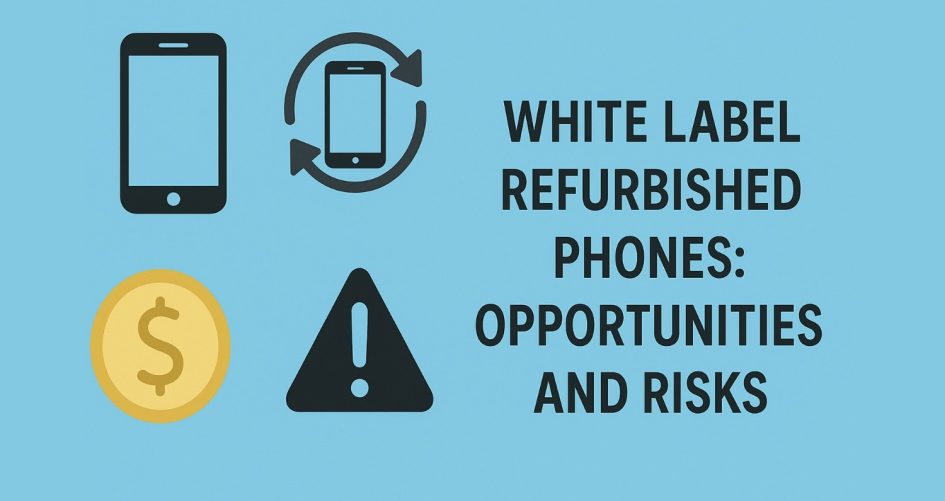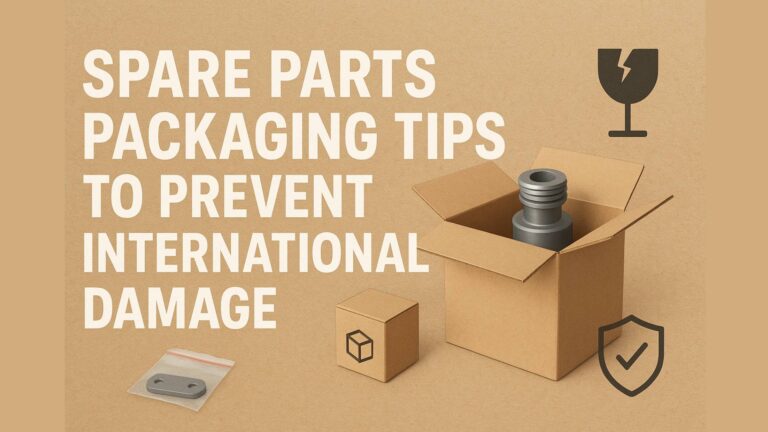Introduction: The Rise of White Label Smartphones
The mobile industry is rapidly evolving, and businesses are seeking innovative ways to stay competitive. One major trend gaining traction is the white label Refurbished Phones market. Coupled with custom phone branding and the increasing popularity of private label mobile solutions, refurbished phones present a promising business model. Whether you’re a reseller, startup brand, or entrepreneur, understanding this landscape can open doors to significant profits — but only if the risks are carefully managed. Know more.
What Are White Label Smartphones?
Definition and Core Concepts
White label smartphones are generic mobile devices manufactured by one company and rebranded by another for resale. These phones are often refurbished to like-new condition and offer a blank canvas for businesses to brand under their own name.
How It Differs from OEM and Branded Phones
Unlike OEM (Original Equipment Manufacturer) models, white label smartphones allow full rebranding without allegiance to existing mobile brands. This model gives sellers more flexibility, customization, and market positioning freedom than traditional reselling.
Custom Phone Branding: Why It Matters
Building Brand Identity with Customization
One of the most powerful elements of the white label smartphones model is custom phone branding. This enables businesses to showcase their logo, create a unique user interface, and even offer pre-installed apps that reflect their brand voice.
Impact on Customer Perception
Customers are more likely to trust and engage with a device that resonates with their expectations and lifestyle. Custom phone branding increases perceived value and can result in stronger customer loyalty and repeat purchases.
Private Label Mobile: A Growing Trend
Market Overview & Demand Surge
The demand for private label mobile solutions is booming. Small and medium enterprises are leveraging white label platforms to enter the smartphone industry without the heavy investment needed for R&D and manufacturing.
Top Markets Adopting Private Label Mobile
Regions such as Southeast Asia, Africa, and parts of Europe have shown significant adoption of private label mobile phones due to cost-efficiency and the growing desire for local brands.
Benefits of Selling White Label Refurbished Phones
Cost Efficiency & Scalability
Refurbished white label phones are often cheaper to acquire, and their lower price points make them highly attractive to budget-conscious consumers. The model scales easily since businesses can increase orders based on market response.
Faster Market Entry
With no need to design and build phones from scratch, businesses can enter the market quickly using white label smartphones, allowing them to capitalize on fast-moving trends.
Brand Control and Flexibility
From packaging design to interface features, you control how your custom phone branding looks and feels. This flexibility means better alignment with your target market’s needs.
Risks and Challenges in White Label Smartphones
Quality Assurance & Warranty Issues
Refurbished devices can pose risks if quality checks are skipped. It’s crucial to choose a supplier that follows certified refurbishment processes and offers warranties on all white label smartphones.
Supply Chain and Inventory Risks
Delays, inconsistencies, or lack of transparency in supply chains can hurt your brand’s credibility. Choosing the right partner with clear logistics is essential.
Brand Liability and Legal Factors
Custom branding comes with responsibility. Businesses must ensure compliance with regulations, including data privacy laws, certifications, and recycling standards.
How to Choose the Right White Label Smartphone Supplier
Certifications and Testing Standards
Ensure the supplier has ISO, CE, FCC, and RoHS certifications. This confirms the refurbished devices meet safety and performance standards.
After-Sales Support and Logistics
Choose a supplier offering extended warranties, return policies, and shipping options. Customer satisfaction hinges on strong post-sale services.
Case Study: Success with Custom Phone Branding
XYZ Mobile, a European startup, entered the smartphone market using private label mobile solutions. Within one year, their branded devices reached over 50,000 units in sales. Their success came from rigorous supplier vetting, strong custom phone branding, and targeted marketing toward budget-savvy millennials.
Tips for Scaling a Private Label Mobile Business
- Partner with reliable logistics firms.
- Invest in online marketing and influencer promotions.
- Offer flexible payment plans to attract low-income buyers.
- Update software regularly to maintain customer trust.
Future of White Label Refurbished Phones in the Mobile Industry
With growing emphasis on sustainability and cost-efficiency, white label smartphones will likely dominate budget segments in the coming years. AI integration, 5G capability, and modular upgrades will further strengthen the case for private label mobile solutions in global markets.
FAQs about White Label Refurbished Phones
1. What are the benefits of white label smartphones?
They offer cost savings, brand flexibility, and faster market entry with minimal upfront investment.
2. Can I trust refurbished white label phones?
Yes, if sourced from certified suppliers with warranties and quality checks in place.
3. What’s the difference between private label mobile and OEM?
OEM sells unbranded or co-branded devices, while private label allows complete rebranding and customization.
4. How do I brand my own phone with a white label supplier?
You’ll work with a supplier to design packaging, pre-install apps, set UI preferences, and include your logo on the phone and accessories.
5. Are there legal risks in custom phone branding?
Yes. You must comply with safety, recycling, and data protection laws to avoid fines or bans.
6. Where can I find reliable suppliers for white label smartphones?
Look for wholesalers with global recognition, certifications, and transparent logistics systems. GSM Exchange is a great place to start.
Conclusion: Making the Most of the White Label Opportunity
Entering the mobile market with white label smartphones is no longer just a niche opportunity — it’s a smart strategy for growth. With the power of custom phone branding and the scalability of private label mobile, businesses can build recognizable brands without investing in manufacturing infrastructure. Still, it’s essential to manage quality, legal, and supply chain risks to ensure long-term success. Done right, refurbished white label phones offer both profit and sustainability in one dynamic package. Know more.





